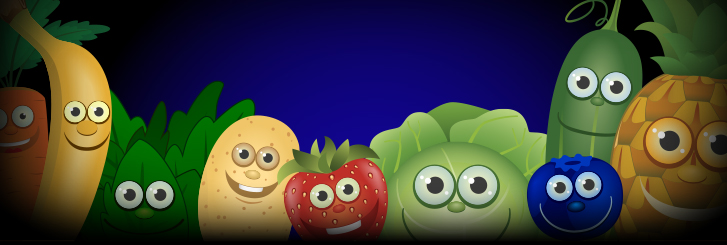No one likes to be left in the dark. Well, it turns out that fruit and veggies don’t like being left in the dark either! Fresh produce doesn’t “die” the moment it is harvested – but when placed in the equivalent of a coffin (dark trucks, dark refrigerators, dark boxes) fruit and vegetables can no longer respond to their environment, including circadian rhythms, which prompt production of healthful phytochemicals.
Researchers from Rice University and the University of California at Davis had previously found that the mouse-ear cress (first plant to have its genome sequenced, and a model organism for studying many plant traits, including light sensing) used its internal circadian clocks to activate insect-fighting chemicals just before insects start to feed at sunrise. As a follow-up study, the researchers attempted to “entrain” cabbage, blueberries, carrots, sweet potatoes, zucchini, spinach, and lettuce to a new simulated circadian rhythm of 24-hour cycles of light and dark — similar to how international travelers “adjust” themselves to a new time zone. Each produce item responded to the new cycle – even the subterranean sweet potatoes!
“We cannot yet say whether all-dark or all-light conditions shorten the shelf life of fruits and vegetables,” observed lead study author Janet Braam. “What we have shown is that keeping the internal clock ticking is advantageous with respect to insect resistance and could also yield health benefits.”
We already know that phytochemical levels may actually increase while fruit and vegetables sit on the shelf, now it appears that by shedding a little light on our produce, it may continue to yield more healthful plant compounds.
Tips for storing:
- Do not store fruits and vegetables together, as the ripening agent in fruits can cause early ripening and spoilage of nearby vegetables.
- Remove ties and rubber bands from vegetables and store in hole-punched bags that allow for flow of air.
- Wash leafy greens before storing and pack them loosely and store away from other vegetables.
Published May 1, 2014



